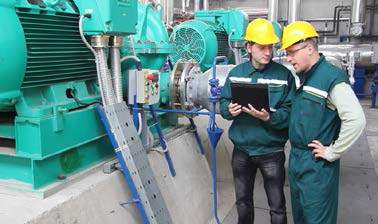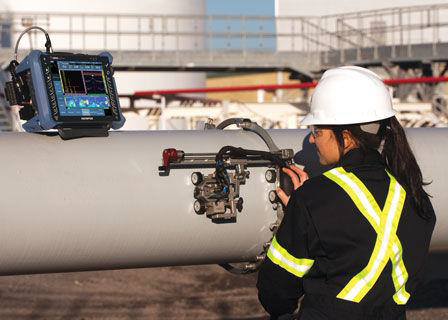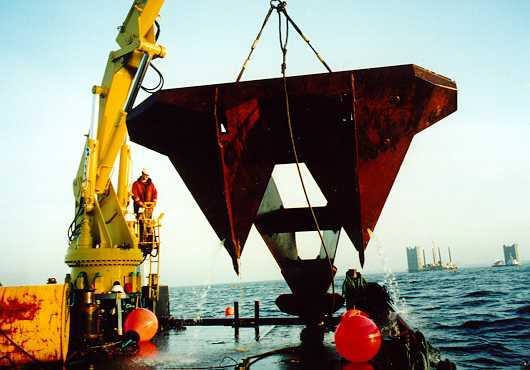COURSE OVERVIEW
FE0920 : API-580 RBI Course & Certification Exam

OVERVIEW
| COURSE TITLE | : | FE0920 : API-580 RBI Course & Certification Exam |
| COURSE DATE | : | Aug 25 - Aug 29 2024 |
| DURATION | : | 5 Days |
| INSTRUCTOR | : | Mr. Geoff Kaschula |
| VENUE | : | Dubai, UAE |
| COURSE FEE | : | $ 5500 |
| Request For Course Outline | ||
OTHER SCHEDULED DATES
| **---- No Other Scheduled Dates ----** |
Course Description
This course is designed to train individuals who are interested in obtaining the API 580 RBI Inspector Certification, as well as those who are seeking an advanced knowledge of Risk Based Inspection requirements. Included with the course is a pre-study guide and student classroom workbook. The student receives instruction regarding how to take the test, as well as insight into the intricacies of "real world" situations. Daily tests are designed to gauge students’ proficiency and understanding of the material.
Haward Technology is proud of its 90% pass rate on all our API sponsored courses.
Further, the course will also discuss the importance of risk-based inspection (RBI) in industry and the goals and benefits of RBI program; the qualitative, semi-quantitative and quantitative methods; the selection criteria for RBI methodology and integration of RBI into inspection programs; the basic concepts of risk, risk matrix and risk ranking and API 581 risk assessment procedures; the common damage mechanisms in the refining and petrochemical industry; the impact of damage mechanisms on risk assessment; the equipment and circuits for RBI; the data collection and documentation for RBI and integration of plant inspection data; the relevant API standards (API 510, 570, 653) and the legal and regulatory framework affecting RBI; the probability of failure (POF) and consequence of failure (COF); the RBI inspection techniques, non-destructive testing (NDT) methods and selection of appropriate NDT methods based on risk; developing inspection planning and scheduling; and the data quality and management in RBI assessment.
During this interactive course, participants will learn the software tools for RBI, RBI program and RBI program maintenance; the risk communication and reporting, performance measurement and improvement; the RBI program audit and review; the quantitative risk assessment (QRA) and reliability-centered maintenance (RCM); the life cycle cost analysis and advanced inspection technologies; the human factors in risk assessment and organizational culture and its impact on RBI effectiveness; incorporating safety and environmental risks; and the compliance with safety and environmental regulations.
TRAINING METHODOLOGY
This interactive training course includes the following training methodologies as a percentage of the total tuition hours
LecturesWorkshops & Work Presentations
Case Studies & Practical Exercises
Videos, Software & Simulators
In an unlikely event, the course instructor may modify the above training methodology before or during the course for technical reasons.
VIRTUAL TRAINING (IF APPLICABLE)
If this course is delivered online as a Virtual Training, the following limitations will be applicable
| Certificates | : | Only soft copy certificates will be issued to participants through Haward’s Portal. This includes Wallet Card Certificates if applicable |
| Training Materials | : | Only soft copy Training Materials (PDF format) will be issued to participant through the Virtual Training Platform |
| Training Methodology | : | 80% of the program will be theory and 20% will be practical sessions, exercises, case studies, simulators or videos |
| Training Program | : | The training will be for 4 hours per day starting at 09:30 and ending at 13:30 |
| H-STK Smart Training Kit | : | Not Applicable |
| Hands-on Practical Workshops | : | Not Applicable |
| Site Visit | : | Not Applicable |
| Simulators | : | Only software simulators will be used in the virtual courses. Hardware simulators are not applicable and will not be used in Virtual Training |
RELATED COURSES

FE0019 : Process/Static Equiptment Mechanical Design
- Date : Dec 09 -Dec 12 / 3 Days
- Location : Abu Dhabi, UAE
- Course Details Register

FE0080 : Piping Vibration Analysis & Practical Engineering Solutions
- Date : Dec 16 -Dec 19 / 3 Days
- Location : Al Khobar, KSA
- Course Details Register

FE0190 : Pipeline Inspection, Testing & Integrity Assessment: Defect Assessment in Pipelines (Practical Aspects)
- Date : Dec 16 -Dec 19 / 3 Days
- Location : Doha, Qatar
- Course Details Register

FE0330 : Metallurgy for the Non-Metallurgist
- Date : Nov 11 -Nov 15 / 3 Days
- Location : Dubai, UAE
- Course Details Register
